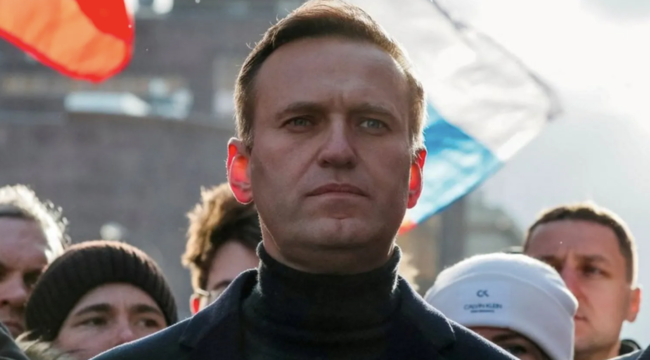In eighth grade at my middle school, we used to do current events pitches each week. We’d compete to see whose pitch was the best and vote on whose topic we wanted to learn about that week. I remember the day my mom sent me an article on Alexei Navalny and I pitched it to my class. Since then, my mom and I have continued to trade articles and news stories, everything from information about his prison sentences to the news of his poisoning to now, the news of his death.
On February 16th, 2024, Russian opposition activist and founder of the Anti-Corruption Foundation Alexei Navalny died in a Russian prison near the Arctic Circle. The signature mark of dictatorial regimes is the phrase “died of natural causes” written on a certificate as the cause of death. That remains true here. His death came after years of accusations against Putin for the malnourishment, beatings, neglect, torture, sleep deprivation, isolation and medical neglect of Navalny while in prison. While the “actual cause” is unclear, we know that Navalny died from authoritarian abuse.
Navalny’s death is a startling example of Putin’s power, ruthlessness and relentlessness. And fear. In life, Vladimir Putin feared him. In death, he might fear him more.
Navalny dedicated his life to democracy, human rights and activism. For the past fifteen years, he tried to topple Putin’s regime and unearth the corruption in the Kremlin. He spent many years with a target on his back, surviving multiple poisoning attempts, death threats and years in Russian jails and prisons. In 2011, Navalny established the Anti-Corruption Foundation in order to expose corruption in Russia. In 2012, he was charged with embezzlement and fraud, both of which he denounced as politically motivated. Four years later, Navalny announced his campaign for the presidency, which he was then banned from as a result of his previous convictions.
Killing Navalny was part of a process and a sustained effort. In 2020, Navalny lost consciousness on a flight and was flown to Germany where he spent two weeks in an induced coma. German doctors confirmed he had been poisoned with a Soviet-era nerve agent called Novichok. It took him five months to recover. During his recovery, Navalny and members of his team investigated the poisoning attempt and recorded a phone conversation in which they posed as Kremlin officials while speaking to an operative, Konstantin Borisovich Kudryavtsev, who was involved in the poisoning. Kudryavtsev admitted to and explained how the poisoning occurred, and the conversation was filmed and released in the Oscar-winning documentary “Navalny.”
After finding freedom and sanctuary, Navalny returned to Russia. He was principled and defiant and unbending. He was immediately arrested under terms of having violated his parole by leaving the country. Once he returned, his team released a documentary they had been working on while he was recovering from the poisoning. In other words, Navalny took the fight back to Russia.
Perhaps one of Navalny’s most famous accomplishments, the film exposed Putin’s secret billion-dollar palace as well as the embezzlement that went into its creation. The film gained millions of views worldwide, and to many was seen as Putin’s last straw. Soon after, Navalny was sentenced to nineteen years in prison and was quickly transported to a “special regime” facility near the Arctic Circle, where he passed away on February 16th, 2024.
Since his death, there has been an outpouring of support for his family, in particular for his wife, Yulia Navalnaya, who has taken on her husband’s role as the leader of the Russian opposition movement. Just hours after Navalny’s death, she spoke at the Munich Security Conference, vowing to hold Putin responsible. Since then, she has made it clear that she will continue her husband’s fight in multiple speeches and statements posted online. In one particularly moving video posted on social media, Navalnaya reflected, “In killing Alexei, Putin killed half of me, half of my heart and half of my soul…But I have another half left — and it is telling me I have no right to give up.”






